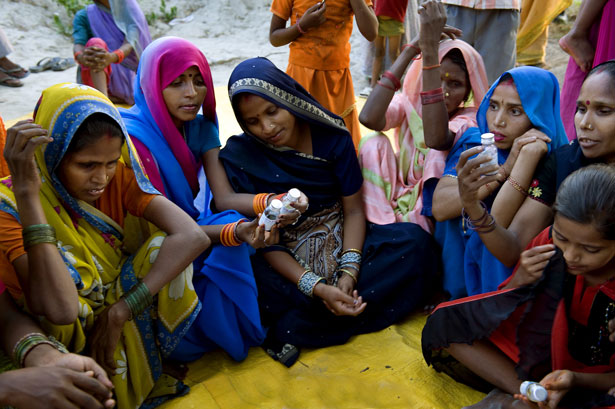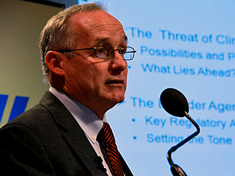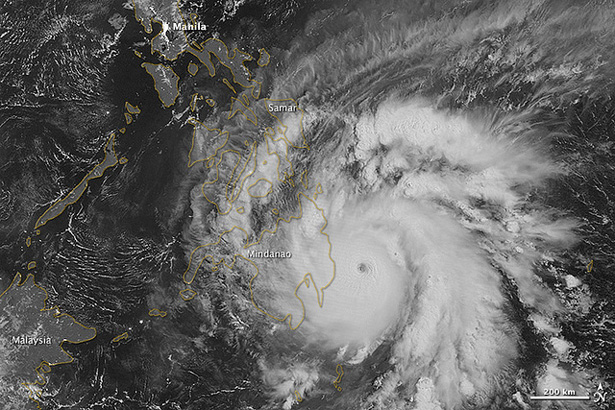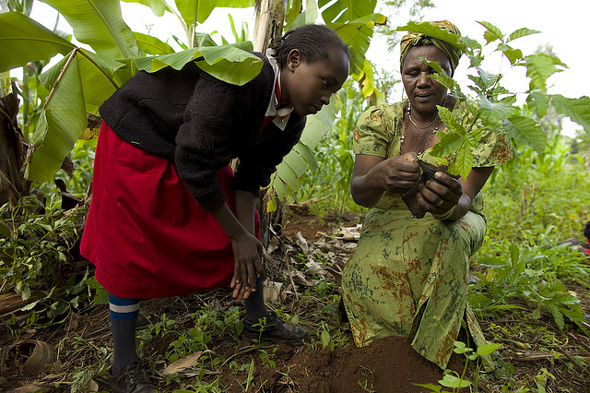-
John Sullivan on the Year Ahead in Energy and Environment News
› Bloomberg BNA‘s Director of Environmental News John Sullivan gives an overview of the key legislative, regulatory, and legal developments expected in 2013, including the Keystone XL pipeline, the future for coal-fired power plants, and the potential actions that may be taken by Congress, the White House, and the Environmental Protection Agency.
Bloomberg BNA‘s Director of Environmental News John Sullivan gives an overview of the key legislative, regulatory, and legal developments expected in 2013, including the Keystone XL pipeline, the future for coal-fired power plants, and the potential actions that may be taken by Congress, the White House, and the Environmental Protection Agency. -
Setting Development Goals for Population Dynamics and Reproductive Rights
›
“I’d like to start by stating emphatically that since addressing global inequality and inequity are our overall principles in revising the MDGs [Millennium Development Goals], we must focus on health inequities to have a meaningful and lasting impact on human development,” said Beth Schlachter of the State Department’s Bureau of Population, Refugees, and Migration, speaking at the Wilson Center on January 9. “And for the most vulnerable – women and girls – that means we must focus on sexual and reproductive health and reproductive rights.” [Video Below]
-
Environmental Migration, Security, and Climate Change
› “Environmental degradation has measurable impacts on migration and presents humanity with unprecedented challenges,” writes Laurence Turbiana in The State of Environmental Migration, edited by François Gemenne and Pauline Brücker of the Institute for Sustainable Development and International Relations and Dina Ionesco of the International Organization for Migration. The report presents the findings of students at the Paris School of International Affairs who examined a number of case studies in 2011, including sudden disasters like the floods in Thailand, Colombia, China, and Bangladesh, as well as slower-onset events like droughts in Somalia and Mexico. The editors conclude that “environmental migration, in its forced and voluntary forms, is a reality.”
“Environmental degradation has measurable impacts on migration and presents humanity with unprecedented challenges,” writes Laurence Turbiana in The State of Environmental Migration, edited by François Gemenne and Pauline Brücker of the Institute for Sustainable Development and International Relations and Dina Ionesco of the International Organization for Migration. The report presents the findings of students at the Paris School of International Affairs who examined a number of case studies in 2011, including sudden disasters like the floods in Thailand, Colombia, China, and Bangladesh, as well as slower-onset events like droughts in Somalia and Mexico. The editors conclude that “environmental migration, in its forced and voluntary forms, is a reality.” -
Super Typhoon Bopha Shows Why Developing Countries Are Most Vulnerable to Climate Change
›January 15, 2013 // By Carolyn Lamere
If Hurricane Sandy was a wake-up call for many in the United States to the kind of extreme weather that climate change is expected to bring, Typhoon Bopha, which struck the Philippines a month later, is a reminder of what makes developing regions even more vulnerable to these changes.
-
New Support for International Family Planning: The Significance of the London Summit
›December 21, 2012 // By Carolyn LamereAt a major summit in London this summer the Bill and Melinda Gates Foundation launched one of the most significant efforts yet to revitalize commitments around the world towards providing universal access to family planning. More than 220 million women around the world – mostly in developing countries – want to delay or avoid pregnancy but are not using effective methods of contraception. Meeting the unmet needs of these women could save the lives of hundreds of thousands of mothers and millions of infants, not to mention significantly impact the future of human development. But the last decade has been a period of relative neglect by international donors.
-
Beyond Carbon Credits: TIST Combines Reforestation, Health, and Livelihood Efforts
›
Carbon offsets have fallen in and out of favor since they were established with the Kyoto Protocol in 1997. Critics say they allow wealthy organizations to placate consumers and claim their products are “green” without making any real, lasting changes. But, if the scheme works properly, some action is supposed to be taken somewhere, so what is it like at one of these credit-producing organizations?
-
Managing the Planet: The World at Seven Billion
›
Population growth “is highly concentrated in what are today the poorest and least well-governed areas of the world,” said George Mason University professor Jack Goldstone at the Wilson Center on December 5.
Goldstone was joined by Suzanne Ehlers, president and CEO of Population Action International (PAI), and Matthew Erdman, population-health-environment technical advisor at USAID, to discuss the implications of seven billion people and counting for the environment as part of the joint Wilson Center-George Mason University Managing the Planet series. [Video Below]
-
Climate Change’s Impact on Human Development
› One of the greatest challenges in addressing climate change is the uncertainty of outcomes. The world is warming and greenhouse gases are accumulating at an unprecedented rate – what does that mean for the future of human development? In Barry B. Hughes, Mohammod T. Irfan, Jonathan D. Moyer, Dale S. Rothman, and José R. Solórzano’s paper, “Exploring Future Impacts of Environmental Constraints on Human Development,” they describe three possible futures for the world (a base line scenario, an environmental challenge scenario, and an environmental disaster scenario) and their potential impact on the indicators of the Human Development Index (HDI). The environmental disaster projection features a flat-lining HDI starting around 2015, with global life expectancy at birth seven years shorter than the baseline in 2060. The report also notes that the future of the planet will be drastically different if the world population peaks “well before 2100,” as is the case in the base line scenario, or continues to grow, as it does in the other scenarios.
One of the greatest challenges in addressing climate change is the uncertainty of outcomes. The world is warming and greenhouse gases are accumulating at an unprecedented rate – what does that mean for the future of human development? In Barry B. Hughes, Mohammod T. Irfan, Jonathan D. Moyer, Dale S. Rothman, and José R. Solórzano’s paper, “Exploring Future Impacts of Environmental Constraints on Human Development,” they describe three possible futures for the world (a base line scenario, an environmental challenge scenario, and an environmental disaster scenario) and their potential impact on the indicators of the Human Development Index (HDI). The environmental disaster projection features a flat-lining HDI starting around 2015, with global life expectancy at birth seven years shorter than the baseline in 2060. The report also notes that the future of the planet will be drastically different if the world population peaks “well before 2100,” as is the case in the base line scenario, or continues to grow, as it does in the other scenarios.
Showing posts by Carolyn Lamere.










